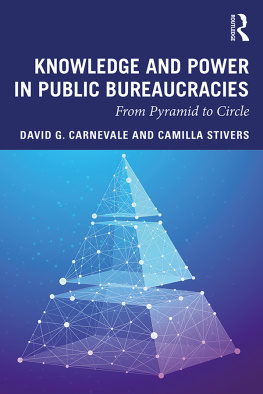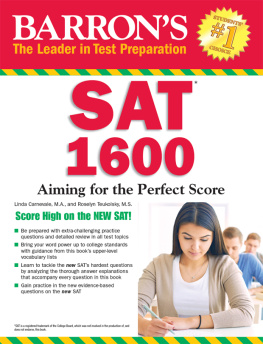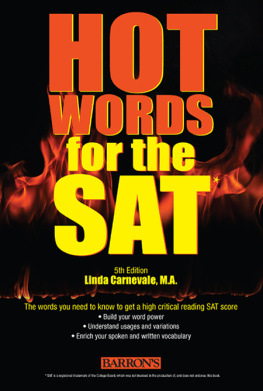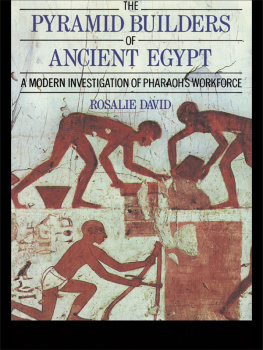KNOWLEDGE AND POWER IN PUBLIC BUREAUCRACIES
Ever since Max Weber and Frederick Taylor, public organizations have been told that effective practice lies in maximizing rationality through science. Yet science-based management reforms have had only marginal impact on performance. People in entry-level positions possess knowledge from direct experience of the work, management knowledge is often science-based and distanced from the work, and appointed top executives struggle to join bureaucratic rationality with political exigencies. Knowledge and Power in Public Bureaucracies: From Pyramid to Circle offers fresh thinking about public organizations, arguing that conflicting forms of knowledge may be found within the bureaucratic pyramid.
Answering the question of why management reforms over the past century have failed on their own terms, this book examines the existence of conflicting forms of knowledge within public bureaucracies, how these contradictory perspectives interact (or fail to interact), and the ways in which these systems preserve managerial efforts to control workers. Authors Carnevale and Stivers argue that bureaucratic rationality is not the one best way, as Taylor promised, and indeed, there is no one best way or model that can be deployed in all situations. The bureaucratic pyramid can, however, be made more effective by paying attention to circular processes that are widespread within the hierarchy, the authors argue, describing such circular processes as facework. This book will serve as an ideal supplement to introductory public administration and organizational theory courses, as well as courses for mid-career professionals, helping to frame their work experiences.
David G. Carnevale is a professor emeritus from the University of Oklahoma. He is former international union director for AFSCME-AFL-CIO, operations administrator of the California State Employees Association, and executive director of the Maine State Employees Association. He is author of Trustworthy Government: Leadership and Management Strategies for Building Trust and High Performance, and Organization Development in the Public Sector. Dr Carnevale is a practiced mediator and a Vietnam veteran.
Camilla Stivers spent two decades as a staff member in community-based publicly funded organizations. She taught public and nonprofit administration at The Evergreen State College, Olympia, Washington, and the Levin College of Urban Affairs at Cleveland State University, where she held the Albert A. Levin chair in public service and urban studies. She is the author or co-author of six additional books. She is a fellow of the National Academy of Public Administration and a former associate editor of Public Administration Review.
First published 2020
by Routledge
52 Vanderbilt Avenue, New York, NY 10017
and by Routledge
2 Park Square, Milton Park, Abingdon, Oxon OX14 4RN
Routledge is an imprint of the Taylor & Francis Group, an informa business
2020 David G. Carnevale and Camilla Stivers
The right of David G. Carnevale and Camilla Stivers to be identified as author of this work has been asserted by him in accordance with sections 77 and 78 of the Copyright, Designs and Patents Act 1988.
All rights reserved. No part of this book may be reprinted or reproduced or utilised in any form or by any electronic, mechanical, or other means, now known or hereafter invented, including photocopying and recording, or in any information storage or retrieval system, without permission in writing from the publishers.
Trademark notice: Product or corporate names may be trademarks or registered trademarks, and are used only for identification and explanation without intent to infringe.
British Library Cataloguing in Publication Data
A catalogue record for this book is available from the British Library
Library of Congress Cataloging-in-Publication Data
Names: Carnevale, David G., 1945- author. | Stivers, Camilla, author.
Title: Knowledge and power in public bureaucracies : from pyramid to circle / David G. Carnevale and Camilla Stivers.
Description: Abingdon, Oxon ; New York, NY : Routledge, 2019. | Includes bibliographical references.
Identifiers: LCCN 2019000114 (print) | LCCN 2019010405 (ebook) | ISBN 9780429266485 (eBook) | ISBN 9780367210809 (hbk : alk. paper) | ISBN 9780367210793 (pbk : alk. paper) | ISBN 9780429266485 (ebk)
Subjects: LCSH: Bureaucracy. | Organizational behavior. | Administrative agencies--Management. | Executive departments--Management. | Communication in organizations. | Knowledge, Theory of.
Classification: LCC JF1501 (ebook) | LCC JF1501 .C44 2019 (print) | DDC 302.3/5dc23
LC record available at https://lccn.loc.gov/2019000114
ISBN: 978-0-367-21080-9 (hbk)
ISBN: 978-0-367-21079-3 (pbk)
ISBN: 978-0-429-26648-5 (ebk)
DEDICATION
To the memory of Ralph Hummel: colleague, intellectual progenitor, co-author, and best friend.
[Cam]: Ralph and his parents came from Germany to the U.S. in the early 1950s. Ralphs father became a machinist at General Motors in Detroit. Maybe thats how Ralph got interested in how people accomplish their work, especially if they are working with their hands. At some point in their stories, Ralph said, working people will tell you that theres a little trick to it; you just have to feel it. He spent years as a newspaper reporter in Detroit, New York, and Washington, D.C. before becoming an academic. He was also a philosopherstudying Kant, Husserl, Arendt, and Heidegger (usually in the original German). I think he was drawn to phenomenology because it deals with addressing the world so that it shows itself to you not as pre-conceived but, as he said, in its own terms. From all accounts Ralph was a fantastic teacher of public administration, even though he had never taken a course in it, and even though he was notoriously unorganized (What? You want a syllabus?). Amazingly, students didnt seem to care. They were always telling him he changed their lives. He was also the best listener I have ever known, and an elegant writer. People were always saying things like, Your book The Bureaucratic Experience? You must have come to my agency! He loved everything about Maine, especially sailing the Mussel Ridge Channel off Spruce Head Island. The Institute of Applied Phenomenology (appliedphenom.org), which Ralph started up almost forty years ago, lives on.
[David:] Ralph and I spent years talking and arguing about different knowledges competing on the job in public bureaucracies and other organizations that rely on workers. We did eventually come to terms about management ideology. Yes, managers did work, but more importantly, they understood work conceptually rather than, as workers did, from direct experience. We called this idea of competing knowledges the knowledge analytic. This volume carries forward and deepens this fundamental dynamic. It is a kind of physics approach to organization theory. These perspectives are explored in great detail in what follows. I pray that readers will recognize in their own experiences as public servants the perspective Ralph pioneered, upon which we have built. May they imagine what is possible in making organizations more democratic for all those who labor in public service.
Many thanks to Veronica Elias for her assiduous and intelligent archival research at Ralphs house in Maine, and to his daughter, Kate Boughton-Hummel, for graciously making the material available.











